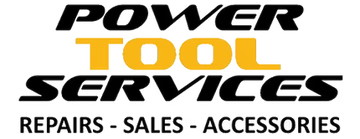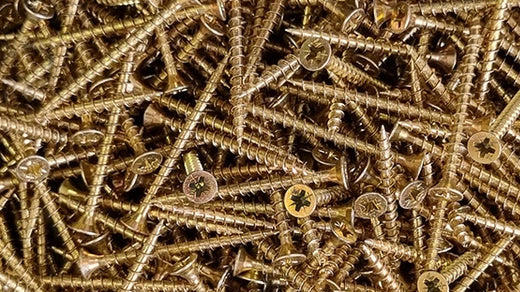Choosing the right screwdriver bit for the job is essential, as using the wrong one can lead to damaged screws, stripped bits, and wasted time. In this guide, we will focus on the differences between Pozi and Phillips screwdriver bits, two of the most commonly used types, and explore every other bit type imaginable to ensure you’re always prepared with the right tool.
The Key Differences Between Pozi and Phillips Screwdriver Bits
 Phillips Screwdriver Bits
Phillips Screwdriver Bits
-
Phillips bits feature a cross-shaped design and are the most commonly used type of bit in household repairs, woodworking, and electronics. Their design allows for controlled cam-out (the bit slipping out of the screw under excessive torque), which prevents overtightening. Phillips screws are versatile but tend to strip more easily if too much force is applied.
![]() Pozi (Pozidriv) Screwdriver Bits
Pozi (Pozidriv) Screwdriver Bits
-
Pozi bits are often mistaken for Phillips due to their similar cross-shaped design, but they have additional diagonal grooves between the main cross slots. This design provides better grip and torque transfer, making Pozi bits ideal for construction, cabinetry, and heavy-duty applications. Pozi bits reduce the risk of cam-out and allow for more force to be applied without slipping, especially when driving long screws.
Key Difference: Phillips bits are designed to cam-out under high torque, which can prevent damage to the screw or work surface, while Pozi bits offer greater torque transfer and grip, making them better for high-torque applications without stripping the screw.
Common Types of Screwdriver Bits
1.  Torx Screwdriver Bits
Torx Screwdriver Bits
Torx bits are star-shaped with six points, designed to provide a high level of torque transfer with minimal risk of cam-out. These bits are ideal for automotive repairs, bicycles, and machinery, where strong fastening is essential. Torx screws are resistant to stripping and can handle more force than Phillips or Pozi.
2.  Security Torx (Tamper-Resistant Torx)
Security Torx (Tamper-Resistant Torx)
Security Torx bits have the same six-point star shape as regular Torx but include a small pin in the center of the screw head, preventing tampering. These screws are common in electronics, appliances, and devices that require tamper-resistance.
3.  Slotted (Flathead) Screwdriver Bits
Slotted (Flathead) Screwdriver Bits
Slotted bits feature a single, flat groove across the screw head. Although this is one of the oldest types of screws, it is less common today due to the bit’s tendency to slip out of the screw. Slotted screws are still used in woodworking, vintage machinery, and electrical components.
4.  Hex (Allen) Screwdriver Bits
Hex (Allen) Screwdriver Bits
Hex bits are hexagonal-shaped bits that fit into screws with a six-sided socket. These are commonly used in furniture assembly, machinery, and bicycles. Hex bits offer excellent torque transfer and reduce the risk of stripping the screw head.
5.  Square (Robertson) Screwdriver Bits
Square (Robertson) Screwdriver Bits
Square bits feature a square recess that provides a tight fit with the screw, reducing cam-out and allowing for greater torque. These are commonly used in construction, cabinetry, and woodworking. Square bits are especially popular in North America.
6.  Tri-Wing Screwdriver Bits
Tri-Wing Screwdriver Bits
Tri-Wing bits feature three wing-like grooves and are typically used in electronics, including game consoles and smartphones. They are designed to prevent tampering and unauthorized repairs.
7.  Spanner (Snake-Eyes) Screwdriver Bits
Spanner (Snake-Eyes) Screwdriver Bits
Spanner bits have two small holes in the screw head. These screws are often used in security applications, such as elevators and public restroom fixtures, where tamper-resistance is required.
8.  Clutch Head Screwdriver Bits
Clutch Head Screwdriver Bits
Clutch Head bits feature a bow-tie-shaped slot. These screws are common in automotive applications, particularly in older vehicles, and are designed for heavy-duty use.
11.  Double Hex (Bi-Hex) Screwdriver Bits
Double Hex (Bi-Hex) Screwdriver Bits
Double Hex bits have a 12-point star design and are used in high-torque applications, particularly in the automotive and aerospace industries. This design allows for a tighter grip and better torque transfer.
Specialized Screwdriver Bits
In addition to the common types, there are specialized screwdriver bits that are used in niche applications:
-
Pentalobe Bits: Commonly used by Apple in their devices to prevent unauthorized repairs.
-
Tri-Point Bits: Similar to Tri-Wing, but with more security applications, commonly found in gaming systems and electronics.
-
Torx Plus: A variant of Torx with a slightly altered shape for even more torque and less wear on the bit.
When to Use Each Screwdriver Bit
- Phillips: Ideal for general-purpose applications, electronics, and woodworking.
- Pozi: Best for construction, cabinetry, and high-torque applications.
- Torx: Used in automotive and machinery repairs due to its high torque capability.
- Security Torx: For tamper-resistant applications like appliances and electronics.
- Slotted: For vintage machinery and woodworking with traditional screws.
- Hex (Allen): Used in furniture assembly, bicycles, and machinery.
- Square (Robertson): Popular in woodworking and construction, especially in North America.
- Specialized Bits: Used for electronics, security, aerospace, and automotive applications.
Conclusion
Selecting the right screwdriver bit ensures your work is efficient and prevents damage to screws and bits. Phillips and Pozi are commonly used in most applications, with Pozi offering more torque transfer and less slippage for heavy-duty tasks. Having a variety of bits, from Torx to Security Torx, Slotted to Hex, will ensure you’re prepared for any job, from general repairs to specialized tasks.





